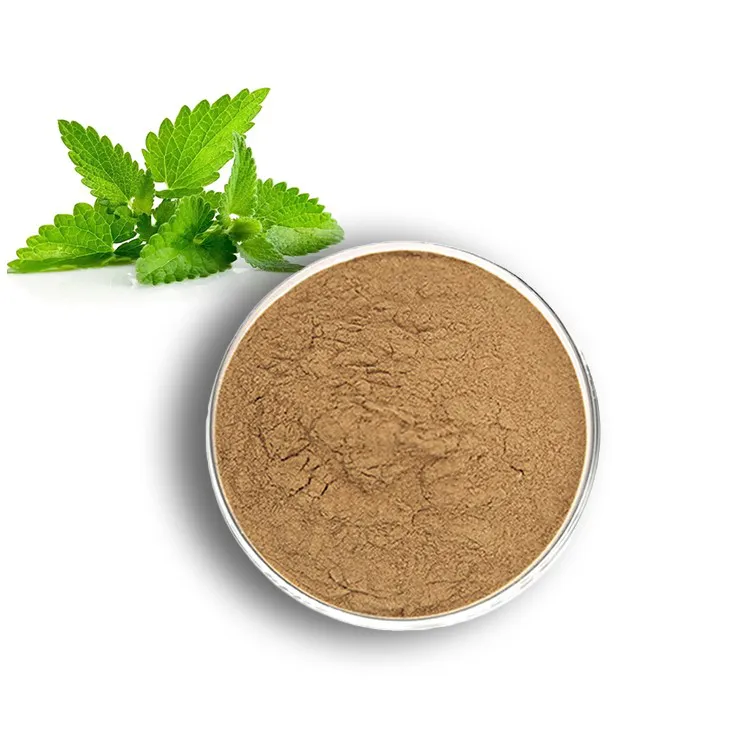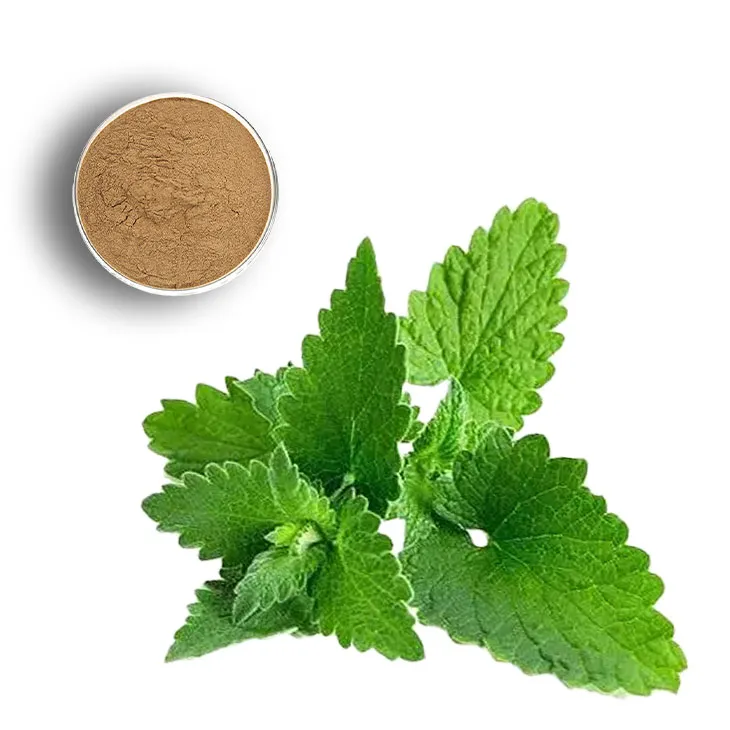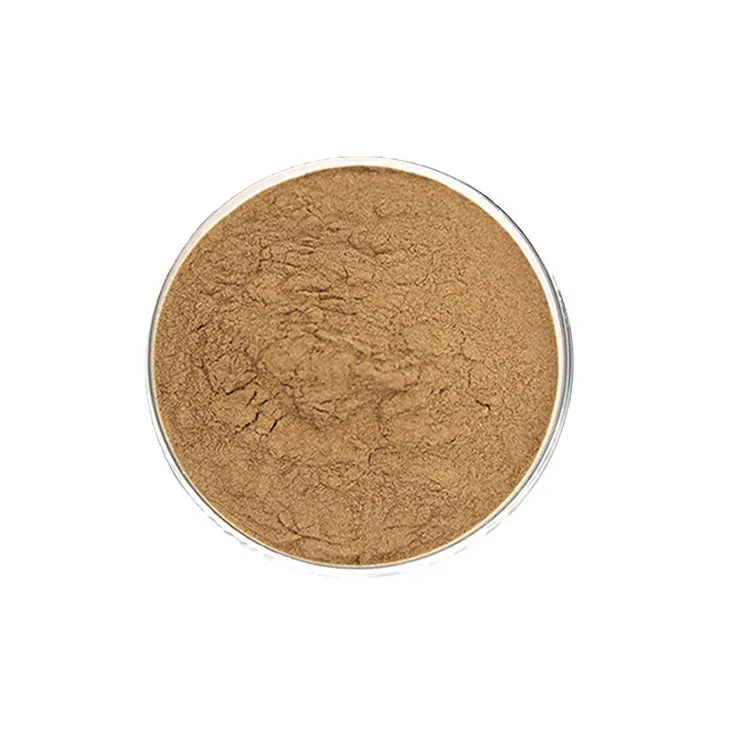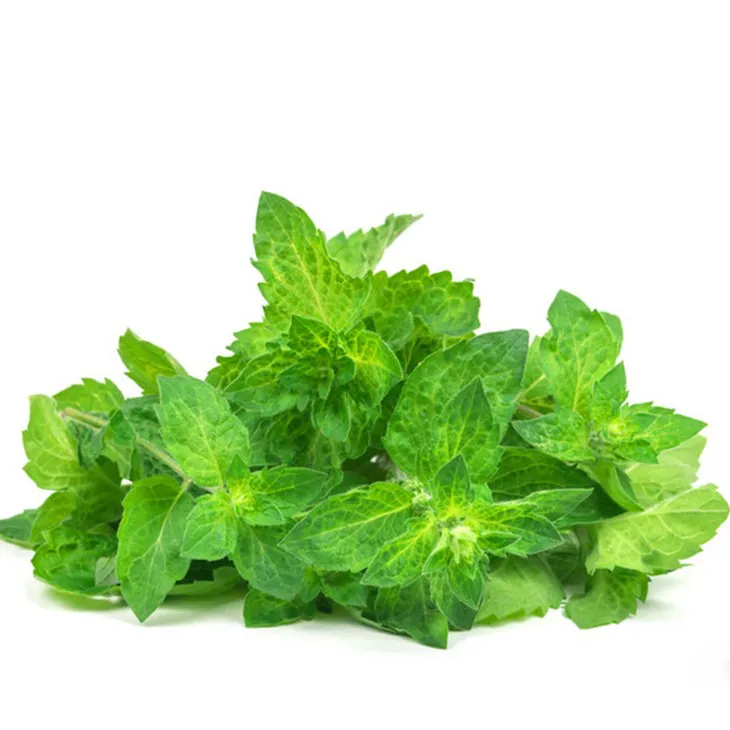- 0086-571-85302990
- sales@greenskybio.com
Expert Tips for Effective Wholesale Lemon Balm Extract Purchasing.
2024-12-12

Introduction
The wholesale market for Lemon Balm Extract has been growing steadily in recent years. This is due to the increasing popularity of natural remedies and the wide range of potential health benefits associated with lemon balm. However, purchasing Lemon Balm Extract wholesale requires careful consideration to ensure quality, cost - effectiveness, and a reliable supply. In this article, we will explore expert tips for effective wholesale Lemon Balm Extract purchasing.

1. Understanding Lemon Balm Extract
Before delving into the purchasing process, it is crucial to have a good understanding of what lemon balm extract actually is. Lemon balm (Melissa officinalis) is a perennial herb in the mint family. The extract is obtained from the leaves of the plant and contains various active compounds such as rosmarinic acid, caffeic acid, and flavonoids.
These compounds are responsible for many of the reported health benefits of lemon balm, including its calming and anti - anxiety properties, as well as its potential to support digestive health and boost the immune system. Different extraction methods can result in extracts with varying levels of purity and potency.

2. Purity Checks
2.1 Analyzing the Ingredient List
When considering a wholesale purchase of lemon balm extract, the first step in purity checks is to carefully analyze the ingredient list. A high - quality lemon balm extract should have a simple ingredient list, with lemon balm as the primary ingredient. Look for any added fillers, preservatives, or artificial colors that could indicate a lower - quality product.
For example, some extracts may contain excessive amounts of glycerin or alcohol as carriers, which could potentially dilute the active compounds in the lemon balm. Ideally, the extract should be free from common allergens such as gluten, soy, and dairy, especially if it is intended for a wide range of consumers.
2.2 Testing for Purity
In addition to ingredient analysis, it is advisable to request test results from the supplier. Reputable suppliers should be able to provide certificates of analysis (COA) that detail the purity and potency of their lemon balm extract. These tests may include assays for the key active compounds, as well as checks for contaminants such as heavy metals, pesticides, and microbial organisms.
Heavy metals such as lead, mercury, and cadmium can be harmful if present in significant amounts in the extract. Pesticide residues are also a concern, especially if the lemon balm was not grown organically. Microbial contamination, including bacteria, yeast, and mold, can affect the safety and shelf - life of the product.

3. Sourcing from the Right Regions
3.1 Ideal Growing Conditions for Lemon Balm
Lemon balm thrives in certain environmental conditions. It prefers well - drained soil, partial shade, and a temperate climate. Regions with these characteristics are likely to produce high - quality lemon balm plants, which in turn can result in better - quality extracts.
For example, parts of Europe, such as the Mediterranean region, have a long history of growing lemon balm. The climate in these areas is often ideal for the plant's growth, with warm summers and mild winters. In addition, some areas in North America, such as the Pacific Northwest, also have suitable conditions for lemon balm cultivation.
3.2 The Importance of Local Sourcing
Local sourcing can have several advantages. Firstly, it can reduce the carbon footprint associated with transporting the raw material over long distances. Secondly, it can support local farmers and economies. When purchasing lemon balm extract wholesale, consider suppliers who source their lemon balm from local or nearby regions.
However, it is important to note that local sourcing may not always be possible or practical, especially if the demand for high - quality lemon balm extract exceeds the local supply. In such cases, international sourcing may be necessary, but extra care should be taken to ensure the quality and integrity of the product.

4. Negotiating Prices
4.1 Researching the Market
Before entering into price negotiations with suppliers, it is essential to conduct thorough market research. This involves finding out the average price range for lemon balm extract in the wholesale market. Factors that can influence the price include the quality of the extract, the quantity being purchased, and the supplier's production costs.
Online marketplaces, industry reports, and trade associations can be valuable sources of information for price research. By having a good understanding of the market, you will be in a better position to negotiate a fair price with the supplier.
4.2 Quantity Discounts
One of the most effective ways to negotiate a lower price is to take advantage of quantity discounts. Suppliers are often willing to offer lower unit prices for larger orders. When considering a wholesale purchase, determine the optimal quantity that balances your inventory needs and cost - savings.
For example, if you plan to use lemon balm extract in a high - volume product line, it may be beneficial to purchase a larger quantity to secure a better price. However, be cautious not to overstock, as this can tie up capital and increase the risk of product expiration.
4.3 Long - Term Contracts
Another option for price negotiation is to enter into a long - term contract with the supplier. This can provide stability for both parties and may result in more favorable pricing terms. A long - term contract can also ensure a reliable supply of lemon balm extract, which is important for businesses that rely on this ingredient.
When negotiating a long - term contract, clearly define the terms and conditions, including the price, quantity, delivery schedule, and quality standards. It is also advisable to include provisions for price adjustments based on market fluctuations.
5. Supplier Reputation
5.1 Checking References
Supplier reputation is a crucial factor in wholesale lemon balm extract purchasing. One way to assess a supplier's reputation is to check references. Ask the supplier for a list of previous customers and contact them to inquire about their experiences with the supplier.
Some important questions to ask include: Were the products of high quality? Was the delivery on time? How was the customer service? Positive references can give you confidence in the supplier, while negative references should be a red flag.
5.2 Industry Certifications
Another indicator of a reputable supplier is industry certifications. Look for suppliers who have certifications such as Good Manufacturing Practice (GMP), Organic Certification (if applicable), and ISO certifications. These certifications demonstrate that the supplier adheres to certain quality and safety standards.
For example, GMP certification ensures that the manufacturing processes are consistent and of high quality. Organic certification indicates that the lemon balm was grown without the use of synthetic pesticides and fertilizers, which can be important for consumers who prefer organic products.
6. Packaging and Storage Considerations
6.1 Packaging Materials
The packaging of lemon balm extract can have an impact on its quality and shelf - life. High - quality extracts are often packaged in dark - colored glass bottles to protect them from light. Light can degrade the active compounds in the extract, reducing its potency.
Also, look for packaging that is airtight to prevent oxidation. Some extracts may also be packaged in blister packs or sachets for single - use applications, which can be convenient for certain products.
6.2 Storage Requirements
Proper storage is essential to maintain the quality of lemon balm extract. The extract should be stored in a cool, dry place, away from direct sunlight and heat sources. Ideal storage temperatures are typically between 15 - 25°C (59 - 77°F).
Humidity can also affect the quality of the extract, so it is important to store it in a relatively low - humidity environment. If stored properly, lemon balm extract can have a shelf - life of up to two years or more.
7. Regulatory Compliance
7.1 Understanding Food and Drug Regulations
When purchasing lemon balm extract wholesale, it is important to ensure that the product complies with relevant food and drug regulations. In different countries and regions, there may be specific requirements regarding the labeling, safety, and quality of dietary supplements.
For example, in the United States, dietary supplements are regulated by the Food and Drug Administration (FDA). The label must include accurate information about the ingredients, dosage, and any potential health claims. Suppliers should be able to provide documentation that their lemon balm extract meets these regulatory requirements.
7.2 Export and Import Regulations
If you are involved in international trade of lemon balm extract, it is crucial to be aware of export and import regulations. These regulations can cover aspects such as customs duties, phytosanitary requirements, and product certifications.
For example, some countries may require specific phytosanitary certificates to ensure that the lemon balm extract is free from pests and diseases. Failure to comply with these regulations can result in delays, fines, or even the seizure of the product.
Conclusion
Purchasing lemon balm extract wholesale requires careful consideration of various factors. By following these expert tips, including conducting purity checks, sourcing from the right regions, negotiating prices, evaluating supplier reputation, considering packaging and storage, and ensuring regulatory compliance, you can make more informed and effective purchasing decisions. This will not only help you to obtain high - quality lemon balm extract at a reasonable price but also ensure the success and safety of your business operations.
FAQ:
What are the key factors to consider when checking the purity of lemon balm extract in wholesale purchasing?
When checking the purity of lemon balm extract in wholesale purchasing, several key factors should be considered. Firstly, look for certificates of analysis from reliable laboratories. These can provide detailed information about the chemical composition and purity levels. Secondly, check for any signs of contamination, such as foreign particles or unusual odors. Thirdly, consider the extraction method. High - quality extracts are often obtained through advanced and carefully controlled extraction processes. Also, verify the presence of any additives or fillers that may affect the purity of the extract.
How can one identify reliable regions for sourcing lemon balm extract?
To identify reliable regions for sourcing lemon balm extract, consider the following. Regions with a long - standing history of lemon balm cultivation are often a good bet. For example, certain areas in Europe, like the Mediterranean region, have favorable climates for growing lemon balm, which can result in high - quality extracts. Look for regions with strict agricultural regulations regarding pesticide use, soil quality, and water management. These regulations ensure that the lemon balm plants are grown in a clean and healthy environment. Additionally, areas with a reputation for producing high - quality herbal products in general are more likely to be reliable sources for lemon balm extract.
What are some effective negotiation strategies for getting a better price on wholesale lemon balm extract?
Some effective negotiation strategies for getting a better price on wholesale lemon balm extract include the following. Do your research beforehand to understand the market price range. This knowledge gives you a strong foundation during negotiations. Consider buying in larger quantities if possible, as this often leads to volume discounts. Build a long - term relationship with the supplier. Suppliers are more likely to offer better prices to customers they see as reliable and long - term partners. Highlight any unique selling points or advantages you bring as a buyer, such as prompt payment or a large customer base. Also, be prepared to walk away if the price is not satisfactory, but do so in a professional manner.
How important is the packaging of lemon balm extract in wholesale purchasing?
The packaging of lemon balm extract is quite important in wholesale purchasing. Good packaging helps to protect the extract from environmental factors such as light, air, and moisture, which can degrade its quality over time. It also provides important information about the product, such as the batch number, expiration date, and ingredients. Packaging that is tamper - proof ensures the integrity of the product during transportation and storage. Additionally, proper packaging can make it easier to handle and store the extract in a wholesale setting, reducing the risk of damage or spoilage.
What are the common quality standards for wholesale lemon balm extract?
Common quality standards for wholesale lemon balm extract include purity levels, as determined by laboratory analysis. The extract should also meet certain safety standards, such as being free from harmful contaminants like heavy metals and pesticides. The concentration of active ingredients, such as rosmarinic acid, is an important quality factor. Additionally, the extract should have a consistent flavor, aroma, and appearance. It should be produced in compliance with good manufacturing practices (GMP), which ensure proper handling, processing, and quality control throughout the production cycle.
Related literature
- The Comprehensive Guide to Herbal Extract Procurement"
- "Quality Control in Wholesale Botanical Extracts"
- "Sourcing and Pricing of Medicinal Plant Extracts"
- ▶ Hesperidin
- ▶ citrus bioflavonoids
- ▶ plant extract
- ▶ lycopene
- ▶ Diosmin
- ▶ Grape seed extract
- ▶ Sea buckthorn Juice Powder
- ▶ Beetroot powder
- ▶ Hops Extract
- ▶ Artichoke Extract
- ▶ Reishi mushroom extract
- ▶ Astaxanthin
- ▶ Green Tea Extract
- ▶ Curcumin Extract
- ▶ Horse Chestnut Extract
- ▶ Other Problems
- ▶ Boswellia Serrata Extract
- ▶ Resveratrol Extract
- ▶ Marigold Extract
- ▶ Grape Leaf Extract
- ▶ blog3
- ▶ blog4
- ▶ blog5
-
Pure 85% Tomentil Extract.
2024-12-12
-
Saponin Extract
2024-12-12
-
Okra Extract
2024-12-12
-
Mango flavored powder
2024-12-12
-
Lavender Extract
2024-12-12
-
Pine bark Extract Powder
2024-12-12
-
Wheat Germ Extract
2024-12-12
-
Nutmeg Extract
2024-12-12
-
Centella Asiatica Extract
2024-12-12
-
Beetroot Powder
2024-12-12
-
Sea buckthorn Juice Powder
2024-12-12





















